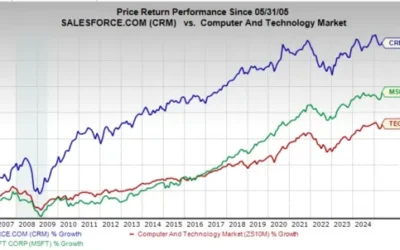Introduction
As we delve into the market landscape on May 23, 2023, investors face a cautious but stable atmosphere. Stock futures remain relatively unchanged, a reflection of the continuing pressure from elevated Treasury yields. This stability comes amidst significant developments in tax policy and trade agendas that have potential implications for Wall Street.
The Current State of Stock Futures
As of early trading, the Dow Jones Industrial Average, S&P 500, and Nasdaq futures have shown signs of wavering, indicating a pause as traders assess the latest economic signals. Specifically, futures are grappling with the tension created by rising Treasury yields, which have placed a dampening effect on market sentiments.
Moreover, traders are closely monitoring anticipated developments regarding a new tax bill that is advancing through Congress. The proposed legislation aims to modify various aspects of the tax code, and it has significant implications for corporate taxation and investment flows.
The Impact of Rising Treasury Yields
The heightened Treasury yields have been a central theme influencing the stock market’s trajectory. As of the latest reports, the yield on the 10-year Treasury note has climbed to levels not seen in several years, contributing to increased borrowing costs for corporations and consumers alike. This rise typically signals market apprehension, as investors weigh risk versus reward.
The implications of higher yields on equities are multifaceted. Such increases can lead to higher discount rates applied to future cash flows, resulting in a potential revaluation of stocks, particularly those in sectors that are sensitive to interest rates, like technology and real estate. Thus, investors are exercising caution, maintaining a close watch on the bond market’s movements.
Wall Street’s Response to Trump’s Trade and Tax Agendas
Amid these developments, the stock market is also digesting policies put forth by former President Donald Trump regarding trade and taxation. Trump’s administration’s tax cuts have been a topic of fierce debate, and the proposed changes are generating mixed sentiments among investors.
On one hand, proponents advocate that the proposed tax changes will incentivize investment and lead to enhanced economic growth. On the other hand, critics warn that increasing corporate taxes could dampen profitability, thereby stifling job growth and innovation.
As part of a broader assessment, traders are considering how these tax agendas will reshape the economic landscape. Will the proposed changes spur growth, or will they act as a deterrent? This is a question that continues to loom over market sentiment.
The Slow Legislative Progress
As the new tax bill progresses through Congress, market participants are analyzing the likelihood of its passage and the specific provisions that may be enacted. The timeline for implementation remains uncertain, injecting an additional layer of hesitance into trading practices.
Key stakeholders and analysts emphasize the importance of understanding the nuances of the legislation. For instance, the potential changes in capital gains taxes could significantly impact investment strategies. If investors believe that rates may increase, we could see a shift in portfolios as individuals and institutions adjust their holdings preemptively.
Investor Sentiment and Market Outlook
With Wall Street navigating this complex web of economic factors, investor sentiment appears to be one of wait-and-see. Market indices are reflecting signs of indecision as participants grapple with conflicting signals from macroeconomic indicators.
While some analysts optimistically predict that the economy will continue its recovery trajectory, others caution that the unprecedented stimulus measures and rising inflationary pressures will create headwinds.
Sector Performance Review
Within this context, sector performance is varied. Traditional safe-haven assets such as utilities and consumer staples have shown resilience, indicating that investors are seeking stability amid market volatility.
Conversely, growth-oriented sectors—particularly technology—face significant scrutiny. As the tech-heavy Nasdaq futures fluctuate, strategists recommend a measured approach, suggesting that investors diversify their portfolios to hedge against potential downturns.
Final Thoughts
As the market opens today, the combination of elevated Treasury yields, ongoing negotiations surrounding tax reform, and the ever-evolving economic landscape creates a compelling yet uncertain environment. Investors are urged to remain vigilant and informed, utilizing a robust analytical framework to navigate these challenges.
Overall, while stock futures are holding their ground, the undercurrents of macroeconomic changes are shaping our economic future in real-time. As more information becomes available regarding tax policies and broader economic indicators, the market’s movements will undoubtedly reflect these developments, urging traders to stay engaged in an ever-evolving trading landscape.
In conclusion, the path forward remains multifaceted. With seasoned strategies and continuous analysis, investors can position themselves in line with market dynamics, contributing to a robust trading approach that accommodates both the opportunities and risks this period presents.







